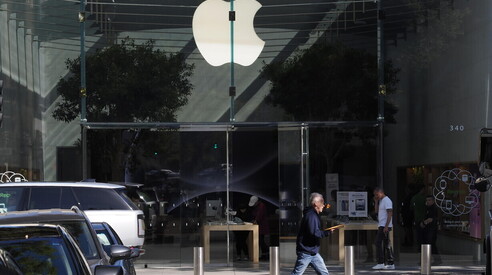The Great Escape from Apple


Ansa photo
Things from our screens
The Cupertino company is losing more and more key players: OpenAI and Meta have snapped up some of its top experts. Apple's "coolness" was great and enduring, but now it's heading towards its end.
On the same topic:
Something's wrong with Apple. Let's be clear: the Cupertino company is still doing very well, its finances are in order, and iPhones are still selling well. But beneath the polished surface lie cracks that are becoming increasingly evident and concern something less palpable and quantifiable: Apple's ability to be cool, both for consumers and for those who work there. In the last two years, the company has suffered two resounding "epic fails." The first is Apple Vision Pro , the $3,500 mixed reality headset that was supposed to revolutionize the way we interact with the world. It appeared and disappeared, apparently with rather disappointing sales results.
The second disaster is called Apple Intelligence , the suite of AI-based services that was supposed to be Apple's answer to the AI revolution, competing with ChatGPT and Google Gemini. The problem? It doesn't work. Or rather, it doesn't work as promised: many of the applications promised (and shown in Apple's ads!) are still missing today, and perhaps impossible with today's technologies. This is unusual, especially for a company like Apple. Under Steve Jobs, announced products were released promptly within months of their unveiling and were exactly what they promised to be. Sure, the first-generation iPhone was shaky, but it worked: it existed. Today, many of the company's launches, especially those of new products and services, seem designed more to reassure investors than to follow Jobs' philosophy.
These precedents have created a terrible climate within the company, especially in the AI department, which finds itself having to patch up an uncertain service while all the other tech companies race at breakneck speed, overcoming one technological barrier after another. Meta found itself in a similar situation, a giant that, nearly three years after launching ChatGPT, had still not found its calling. Until last July, when boss Mark Zuckerberg launched a billion-dollar acquisition campaign to acquire the best minds in the industry, literally snatching them from the competition. After OpenAI, Apple is one of his favorite targets. Just this week, Meta hired Yang Zhang, Apple's former head of robotics, who joined the Meta Robotics Studio. In August, according to the Financial Times, Apple lost Brandon McKenzie and Dian Hang Giap, two experts in Foundation Models —those enormous and incredibly powerful language models that underpin all the most advanced AI applications. Both have since joined OpenAI.
But the hardest blow came in July, when Ruoming Pang, Apple's head of Foundation Models, accepted yet another offer from Meta. Other researchers have chosen emerging startups like the Canadian Cohere rather than staying in Cupertino. It's not normal to prefer Zuckerberg to Apple . Or rather, it wouldn't have been until a few years ago. But things change, and Apple has changed too, in recent years, or perhaps it has remained too stagnant while everything else has moved around it. On one side, there's Meta, which showers millions on anyone who decides to work for Zuckerberg; on the other, there's Apple, where the morale of the "talent"—as the brightest employees are called internally—is at an all-time low. The news that Apple is considering using Google Gemini for the launch of the "new" Siri, scheduled for next year, didn't help. Instead of solving the problem internally, they're using other people's technologies.
The result is that around Cupertino, it's no longer fun. While competition pays high prices and offers employees absolute freedom, Apple has become increasingly empty and impervious to the young, untamed talent that every tech company desperately pursues, especially in this historical moment. And the problem goes beyond artificial intelligence. The departure of the head of robotics, for example, is a worrying sign for a sector that Apple considers strategic for the future, given its plan to fill our homes with smart devices and home automation services, like HomePod. Apple's "coolness" has been so great and enduring that it has been taken for granted , as if it were an unshakeable and eternal layer surrounding the brand. But even these things change, fall apart, crumble. New generations have grown up without having met Steve Jobs directly, without having experienced the launch of the iPod or the iPhone revolution: they only know this Apple, which is something very different.
More on these topics:
ilmanifesto




